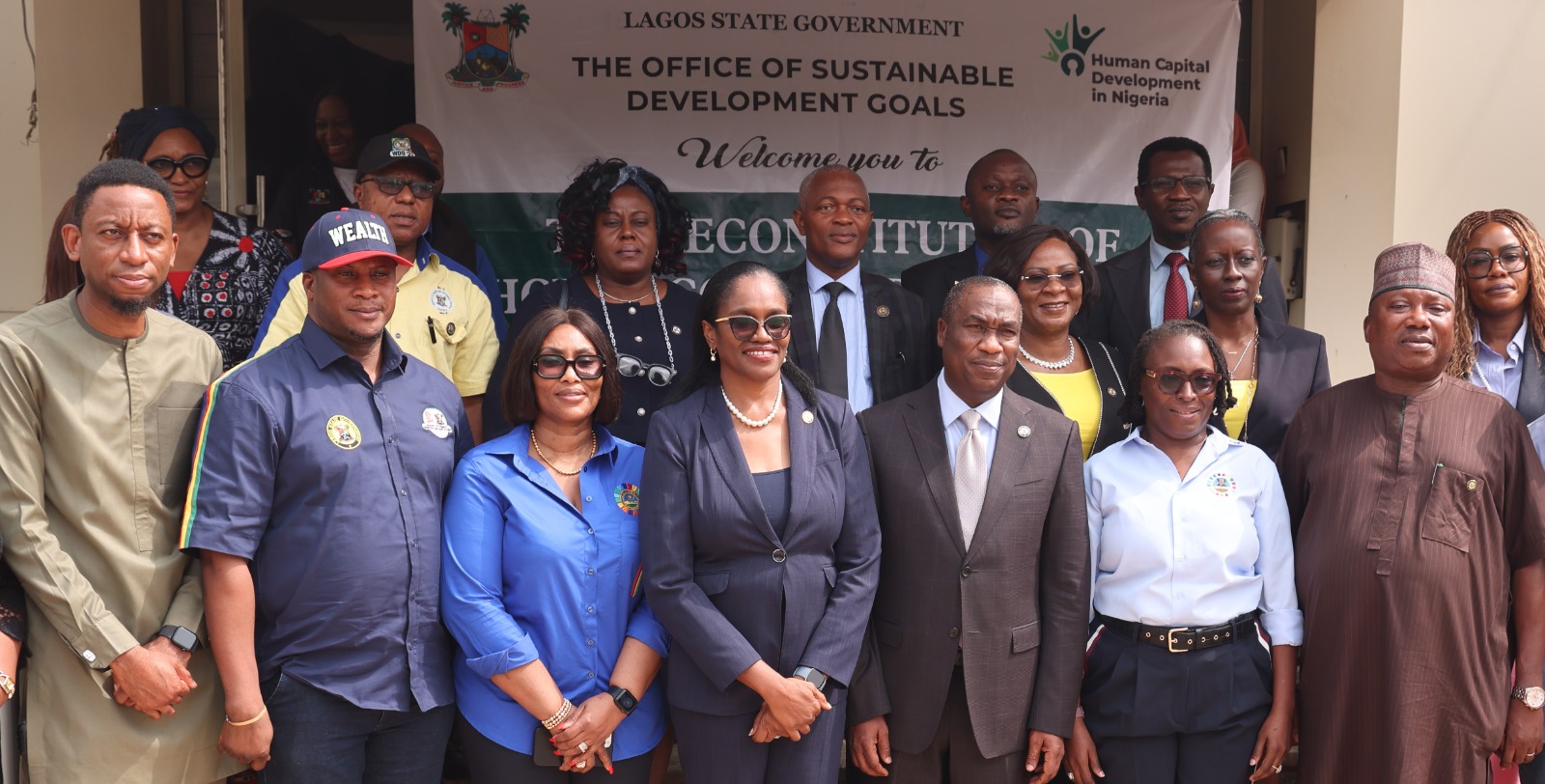Lagos State Deputy Governor, Dr. Kadri Obafemi Hamzat, has emphasized the importance of collecting, collating, and disseminating accurate data for the effective development of the state and the nation as a whole.
Hamzat made this remark while speaking at the “Reconstitution of Human Capital Development 2.0 Lagos State Core Working Group,” held on Thursday at the Office of the Deputy Governor, Round House, Alausa. He stressed the need for Ministries, Departments, and Agencies (MDAs) at both the state and national levels to maintain accurate, readable, and transferable data to positively project Nigeria on the global stage.
The deputy governor noted that the initiative aims to enhance the state’s global visibility and promote informed decision-making. He added that by adopting this approach, Lagos State can ensure seamless data sharing, facilitate collaboration, and drive progress across various sectors.
He lamented that Nigeria was rated by the World Bank as one of the lowest in human capital development worldwide due to a lack of reliable data.
Hamzat further underscored that data is the foundation of any society, adding that proper data management is a crucial step toward leveraging data-driven governance to propel the state’s development and enhance its global reputation.
ALSO READ: Sanwo-Olu reiterates commitment to boost local businesses
“Data is the bedrock of any society. What is important is that ministries must have data in a format that is readable and transferable so that we can share it, allowing the world to see what we are doing across all sectors. It seems to me that we are not projecting our data well, and data is what defines us,” he said.
He also pointed out that when global organizations assess Nigeria’s development based on data, they primarily rely on statistics from Lagos and Kano. According to him, this often results in a misrepresentation of the country’s actual progress.
“When they measure Nigeria based on its data, they focus on Lagos and Kano. Sometimes, they include Rivers State. The moment they analyze these data points, they conclude that Nigeria is underperforming. These are the aspects they consider,” he explained.
Hamzat further stressed the need for Nigeria to harness its data effectively, warning that inaccurate or incomplete data diminishes the country’s standing in global assessments.
“In Nigeria, we don’t disseminate information correctly, and as a state, we are losing valuable resources by failing to maintain comprehensive data,” he said.
The deputy governor urged the Lagos State Bureau of Statistics to strengthen its collaboration with ministries to ensure accurate data collection and collation. He emphasized that the Bureau plays a critical role in realizing the Greater Lagos Agenda and advancing the development initiatives of the Sanwo-Olu/Hamzat administration.
Special Adviser to the Lagos State Governor on Sustainable Development Goals (SDGs), Dr. Oreoluwa Finnih, described the gathering as a pivotal moment in the government’s commitment to socio-economic transformation through strategic, data-driven, and people-centered development initiatives.
Finnih explained that the transition from the initial phase of Human Capital Development (HCD) to HCD 2.0 represents more than just a change in name; it signifies a paradigm shift in how human capital development is approached.
“The 2.0 extension signifies a deeper integration of technology, data-driven policymaking, and an inclusive governance framework that places people at the center of development. This refined strategy aligns with global best practices and the broader vision of achieving the SDGs by 2030,” she stated.
She highlighted that the core of HCD 2.0 lies in a holistic and structured approach focused on strengthening three critical sectors essential for human capital development:
Equitable and Modern Healthcare
An Inclusive and Functional Education System
The Promotion of Financial Inclusion
Finnih urged members of the reconstituted HCD Core Working Group to work toward a shared vision of progress, inclusivity, and sustainable impact. She acknowledged the high expectations placed on the group and encouraged them to rise to the challenge.
“Expectations are high, but so are our capabilities. Let us work diligently to build a Lagos where citizens have access to quality healthcare, functional education, and financial empowerment,” she concluded.






